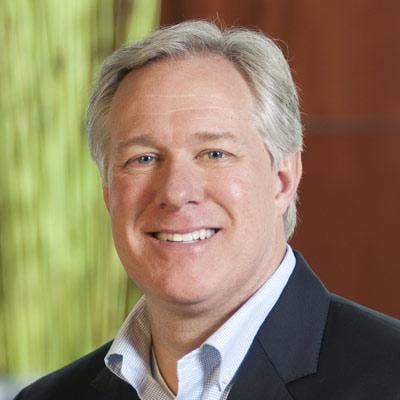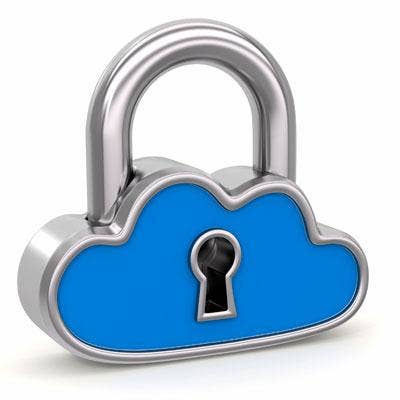CRN Interview: Tyler Technologies CFO On Security M&A, Threat Intelligence, And Government Demand For Public Cloud

Another Day, Another Deal
Tyler Technologies CFO Brian Miller said the company's recent acquisitions are meant to shore-up the company's spot as a leading provider of cybersecurity services to county and municipal governments.
The purchase of Sage Data Security and Socrata will provide small and mid-sized schools, courts, and towns with superior cyber defense and data analytics. Both features are important, Miller said, as the public sector continues its slow march to the cloud.
With 15,000 clients in the public sector, Miller said Tyler is ready to help its customers move to cloud services, though he added the company is also able to accommodate those who wish to keep their systems in-house.

Tyler has been on a bit of a buying spree lately. Are you looking to move the company in new direction or are these acquisitions related to solving problems for your clients?
Most of our acquisitions were focused on expanding our product offerings, so adding a product, a software solution, a service, maybe a technology that broadens our offering. That could be in an existing suite of products, so for example DHD, which we did last year, really was a point solution that fit in with our overall licensing and regulatory solution, EnerGov. So it added functionality. it had a customer base, but it really was a tuck-in acquisition. Some of those are broader and really kind of get us into a whole new sub vertical or a whole new functional area of government, so when we acquired New World [for $670 million], a couple years ago, we had a small presence in the public safety market, that really gave us an entrance into a public safety space which was sort of a large gap in our offering.

How did the purchase of Sage Data Security and Socrata fit into this?
Sage and Socrata sort of fit in between in that they're technologies and offerings that sit on top of most existing Tyler products, and don't just fill in a niche, but really, add to virtually every Tyler product we have. In the case of Socrata adding to the data and analytics component, to make our existing solutions more valuable, and in the case of Sage adding the cyber security to their network, and providing a new offering to add value to our customers.
So when you look at Sage and Socrata, certainly, top of mind, public sector and private sector, are data and analytics, and cyber security. So those are certainly hot topics and places where governments particularly have needs and that are existing solutions that we didn't necessarily fill, so it's a logical expansion to what we do.

When people think of the cloud, they obviously think of security. Are you hearing a demand for better threat intelligence from your clients?
Yes. That's where Sage comes in. They really provide security in the environments where the applications run. They detect potential incidents, they monitor the network and the devices on that network for intrusions, hacking, and ransomware. Atlanta had a pretty well publicized ransomware attack that shut down a lot of their systems for a period of time. Baltimore had a hacking that shut down their 911 for a period of time. These are large fairly sophisticated governments. So when you get down to the small and mid-sized towns and school districts, they have the same concerns. and fewer resources to deal with them.

Cities and towns produce a lot of data. What does Tyler hope to accomplish with Socrata?
Our whole connected communities aspect that we've been talking about for the last year or two is based in large part on governments using data more efficiently and being able to integrate systems. The Socrata technology will help us advance that vision quite a bit faster.
Governments have a lot of silos of data. A lot of it is locked into disparate systems, and that's even within a jurisdiction, within a city or within a county. When you look across a region, and you have multiple jurisdictions that have their own data in their silos of information, Socrata sits on top of those systems and services that data, makes it usable, and provides it in a format that is accessible and understandable.

Is the public sector embracing the cloud or do you still see a lot of reluctance?
In terms of our new business, roughly a third of our new customers are choosing to adopt our systems through the cloud, and two thirds are still on premises. We are seeing that percentage of the mix increase towards the cloud gradually. We're seeing more adoption in larger clients as well. Socrata is a 100-percent cloud-based offering and we would expect to continue to see the market move more and more towards the cloud, although we're not forcing that change. We offer all of our software products in either an on-premise licensed model, or a hosted cloud model under a subscription. We let clients decide when they want to make that change. We give people a choice we have a nice transition path for on-premises clients that want to move to the cloud.

What does Tyler plan to buy next and what are you looking for?
We've done extensive work on what we call our white space analysis over the last couple years and looking at where we have gaps, or products that aren't leading products, and whether we fill in those gaps with internal builds or whether we fill them in with acquisitions. We've prioritized those things. We've got a white space analysis, a shopping list sort of, but that's certainly not something we talk about publicly, but we are as you said, focused solely on the public sector and primarily local governments in the public sector. We're not looking to stray from that.